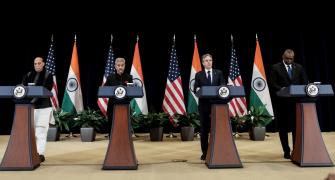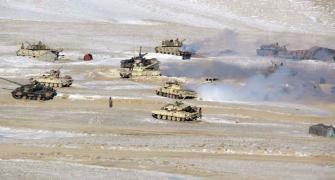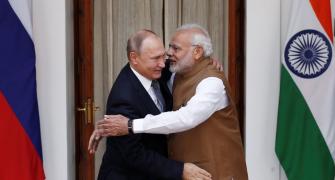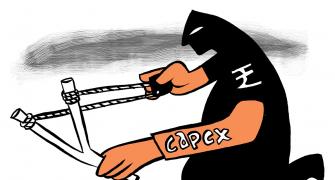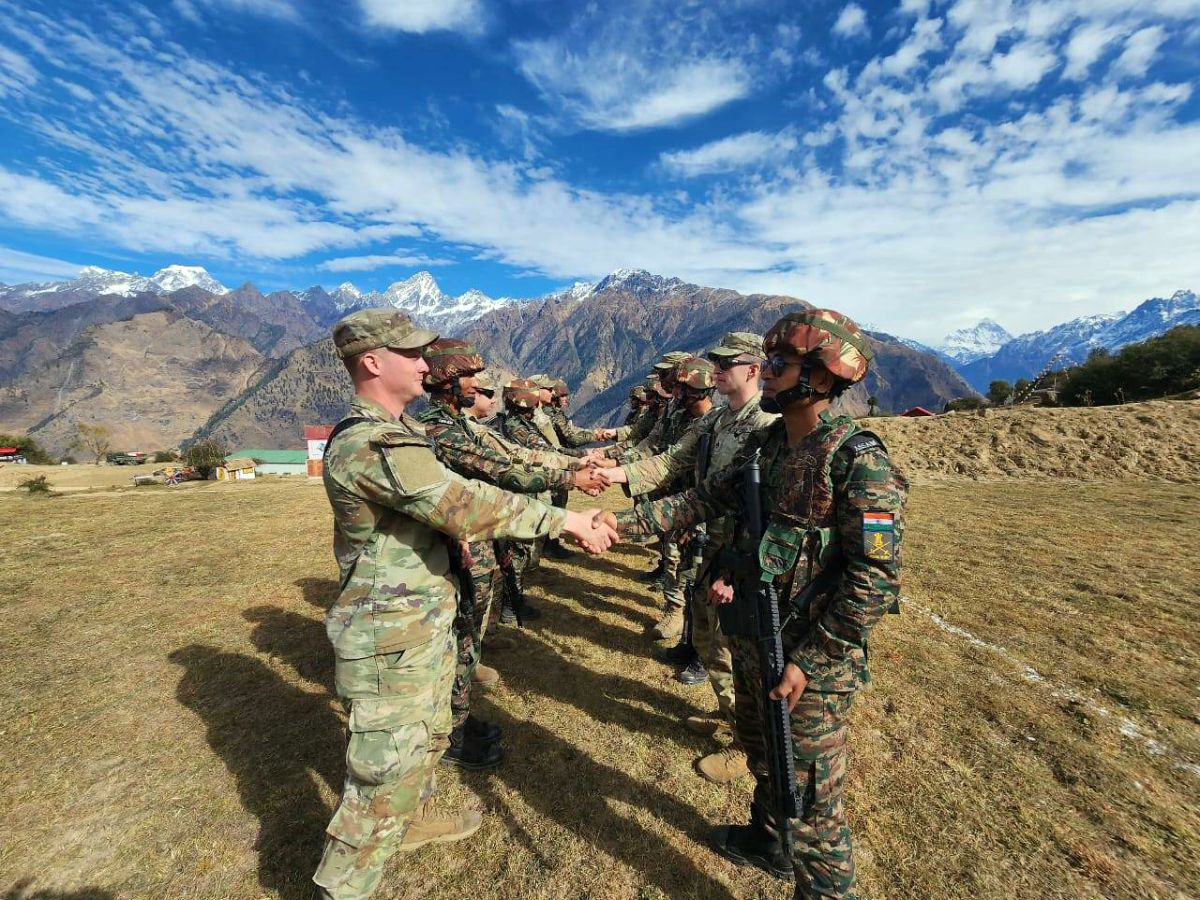The Indian position on the Russia-Ukraine war and the unconditional treaty between China and Russia appear to have caused some ripples in India-US relations and led to a reappraisal of India's usefulness to the US in the eventuality of a conflict with China, notes Ambassador T P Sreenivasan.

Post-pandemic America, engaged in a virtual conflict with Russia and in confrontation with China, has become increasingly conditional and transactional in international relations.
It has begun to evaluate relations of allies and friends in the context of their usefulness in conflict situations.
Even in the case of India-US bilateral relations, which were built brick by brick as mutual interests were identified, a review seems under way and the litmus test is whether India would support the US in the event of a war with China.
As the world's largest democracies, bound by common values and principles, India and the United States should have been natural allies.
But the fears of Western imperialism in India and the US perception of Indian non-alignment as immoral and inimical to US interests were not conducive to a natural and smooth relationship.
During the Cold War, of course, the Indian enthusiasm for Communist China and improvement in India-Soviet relations placed India in an adversarial position with the US, regardless of scientific and educational collaboration, including the Atoms for Peace, PL-480 wheat supply and shipment of weapons to meet the Chinese aggression.
Every step in the development of relations even to the level of strategic partnership has been transactional.
India was quick to build bridges with the United States in the unipolar world that emerged soon after the Cold War by liberalising its economy, relaxing restraints on foreign forces in the Indian Ocean, establishing an embassy in Tel Aviv and generally lowering the rhetoric on issues like the NPT, Palestine and even Pakistan.
The US responded to these gestures, leading to improvement in relations, reflected during Prime Minister Narasimha Rao's visit in May 1994.
Evidently, the US encouraged the changes in Indian positions as the fruits of the new world order.
But on issues like NPT, the US maintained that no concession was possible legally and constitutionally.
President Bill Clinton decided to visit India in 1997 to take the relations forward, but the Indian nuclear tests in May 1998 caused a major setback as the US imposed severe sanctions against India.
The Jaswant Singh-Strobe Talbott talks for the next two years were the first comprehensive exercise in a detailed examination of mutuality of interests between the two countries, particularly in the field of nuclear energy.
The understanding reached in the talks led to President Clinton's visit to India, Prime Minister Atal Bihari Vajpayee's visit to the US and eventually the nuclear deal signed in 2008.
The nuclear deal was transactional as the agreement dealt with the security interests of both countries and led to fundamental changes in India's nuclear posture.
But the US reneged on the nuclear trade promised under the deal as the US did not consider strengthening of India's nuclear capability in its own interest.
The nuclear deal relaxed the constraints imposed by the Nuclear Suppliers Group, but the US itself did not budge on its position on nuclear cooperation with India.
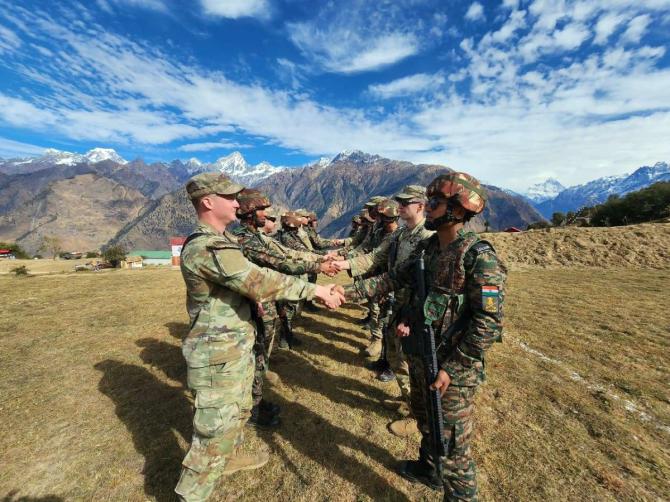
China had always been a factor in the development of India-US relations, but initially the US did not envisage India-US cooperation as counter to China.
At one point, President Clinton appeared to count on China to keep the peace in South Asia in the context of an emerging G-2, consisting of the US and China.
But the new architecture of relations established in 2000 and the emergence of the Quad, the US began to apply the litmus test of measuring how much India will be willing to coordinate positions on China with the US.
The Trump administration supported India openly and expanded military cooperation when China violated the Line of Actual Control in Ladakh.
President Biden was, however, restrained in its support to India.
The growth of strategic co-operation with India was placed in the broader context of international security.
The Indian position on the Russia-Ukraine war and the unconditional treaty between China and Russia appear to have caused some ripples in India-US relations and led to a reappraisal of India's usefulness to the US in the eventuality of a conflict with China.
As a result, the US sharpened its criticism of the erosion of democracy in India and began to wonder whether US investments in India-US relations would be beneficial to the US in the event of a conflict with China.
At least one strategic analyst, who had been a champion of India-US relations, Ashley Tellis, has asserted in a Foreign Affairs article of May 1, 2023 that India was a bad bet for America as 'New Delhi won't side with Washington against Beijing.'
He has said that for the past two decades, Washington has made an enormous bet on India by treating it as a key partner in its geopolitical rivalry with China.
The Biden administration has gone even further by launching an ambitious new initiative to expand India's access to crucial technologies and deepened defense cooperation.
According to Tellis, because of India's military imbalance with China and its long volatile border, 'Washington's current expectations of India are misplaced.'
India will never involve itself with China in any US confrontation with Beijing that does not directly threaten its own security, Tellis says.

Apart from the fact that Tellis has changed his traditional position of stressing the mutuality of India-US relations, his new analysis runs contrary to the fundamentals of Indian foreign policy based on strategic autonomy.
Its policy on China may be cautious on account of its proximity to China and the history of its border with China, particularly after the annexation of Tibet and the Dalai Lama's arrival in India, the option of a war with China either alone or together with any other power was never envisaged.
The strengthening of India's military capability, including nuclear, is a deterrent rather than a power projection.
India realises that participation in a military structure or an understanding that India will be a potential partner in a conflict will make India even more vulnerable to aggression.
As Tellis has stated, India seeks to acquire advanced technologies from the US and others to bolster its own military capabilities and defence posture rather than to depend on others on a commitment to wage war for them.
The diversification of its military imports also gives India's strategic autonomy some depth and credibility.
The presumed expectation of Indian support in the eventuality of a war with China appears exaggerated.
India may not be privy to the details of the United States's contingency plans, but it is clear that its capabilities to defend its interests and itself will not be dependent on the Indian position at a critical time.
India's value for the US goes beyond its capacity to wage war.
Bilateral relations at times of peace are as important as times of war and good relations with India will only add to the standing of the United States.
Ambassador T P Sreenivasan is a frequent contributor to Rediff.com and you can read his earlier columns here.
Feature Presentation: Aslam Hunani/Rediff.com

